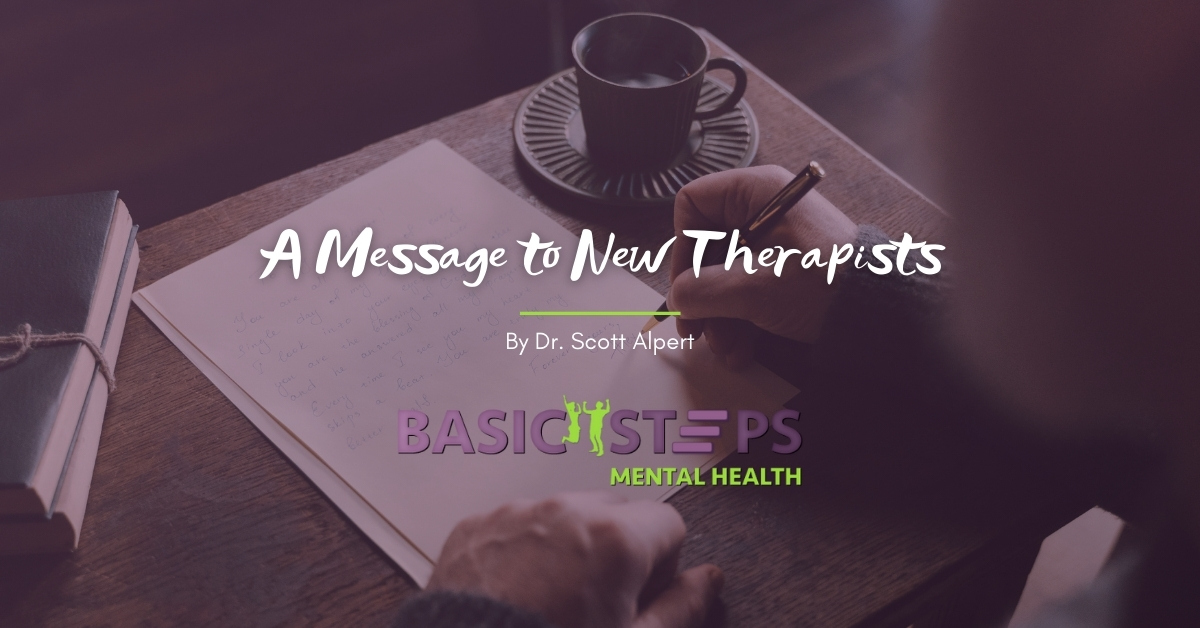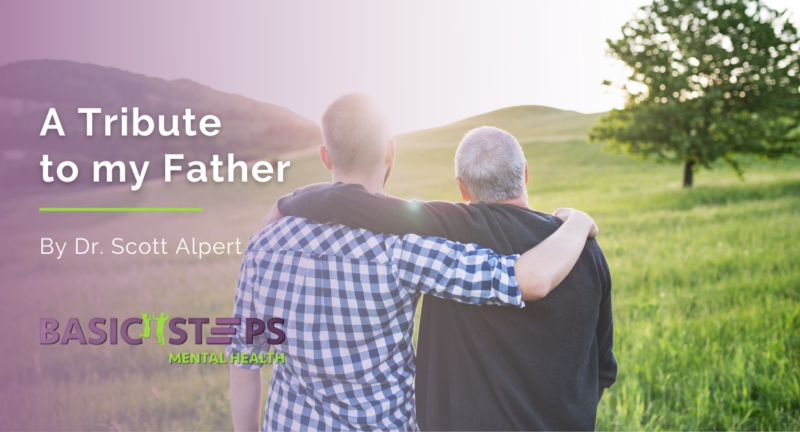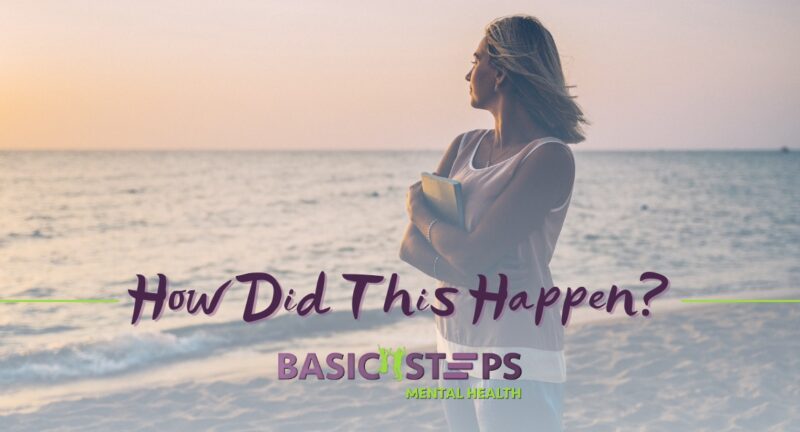
A Message to New Therapists
If you are an intern and starting in this profession, toss away everything you have learned and pay attention to one thing – the customer. This isn’t a time to dazzle them with theory, or prove to them that you are really brilliant, simply let go of that and be yourself. You have to understand that the most important aspect in the healing profession is your bedside manner – so to speak.
New therapists are asked to go through 20 plus hours of personal therapy. Pay attention to how this therapist works with you. The number one priority in any relationship is being heard. If you don’t listen, then you are not letting your guard down. Would you open up to a guarded therapist? The success in therapy takes place in the initial session. There are volumes written about the “Therapeutic Bond”, or the closeness both client and therapist create. The books I read talk about this bond being established in six months, I’ve seen it established the second they walk into the office.
How can an instantaneous bond be established? By your working through your issues in therapy. If you bring your unresolved issues into the session, you will be guarded, preachy, and not listening. I recall when I first started in the industry I had a desire to laugh. It was my defense mechanism. The people I was counseling were feeling the same depression that I felt deep inside and it felt good to know that I wasn’t the only person feeling that way. I had to work on these feelings in therapy, learned to use a sort of mantra that I repeated in my head while I was counseling someone that went, “God bless you I love you.” This helped me keep my heart open and simply listen to what they were saying.
Listening is an art form. And sometimes silence can be the key to someone really opening up. Wait a few beats before talking, this will portray that they need to talk more on the subject. I hate to be the bearer of bad news but the profession of psychology is that of listening. Do you really know how to fix them? Then let me know that. I’ve tried to figure that out for 28 years! It is not for us to fix the person, that is their job. Ours is to listen, get them talking more about what has been troubling them, and give them some options about how they would like to address it.
Interns that are supervised at our facility are shocked about how important it is to use heart centered listening. If you haven’t heard about this, do some research on Person Centered Therapy, an approach created by Dr. Carl Rogers. He was an amazing man who developed, Perception Checking, asking open ended questions, and the use of silence. He never gave advice because in doing so, you would be telling the client what you would do. You aren’t them. You have a different life experience so it is important for them to find the answers to their own issues. To be honest, they will eventually come around to what you think would help, but it would be intrusive for you to tell them.
I must have told my daughter fifty times what to do to solve a problem. Of course, she never listened to me. That is because she needed to learn things on her own. Think about your life, when you solved a problem through your own efforts didn’t it feel amazing? In assisting people in solving their own problems, that is more meaningful and more everlasting.
One of my interns wrote on the back of her hand, “Shut Up”. This was to remind her to hold her tongue. She had a bad habit of talking more than the client. If you find yourself working harder than the client, shut it down, become silent, and let them take the lead. If they are silent, allow them to. It is okay. Then take it as an opportunity to calm down your need to be a fixer. It takes practice but silence may be something they need.
In many sessions, I find it to be important to teach people self help tools. Since the majority of my own healing was accomplished through journal writing, or practicing good self care. Then after the session the person has some tools they could use to try and better themselves on their own. I have always believed that it is important to help empower people. If, in the session they ask me what they should do, I tell them, what do you think I would tell you? After they respond I tell them, that sounds like a great idea.
Another option is to ask them about their options. Once listed ask them which one they intend to use. This is when I become a cheerleader and support them for taking the action steps needed in their life.
No, this isn’t the standard, Dr. Phil approach where you give them the top 10 solutions to their problems. Let’s imagine you giving them advice and they do so and then get injured. That is on you. Malpractice is a big issue in the helping profession. Why do you feel the need to fix them? Or, as they asked me the first day in graduate school, “Why do you want to be a counselor?” Why do you? If it is to fix people, you are in the wrong profession. All we can do is love people, listen to them, help empower them, and support their efforts.
The last item I’d like to comment about is genuineness. Be yourself. If you need to cry, then cry. It happens all the time with me because I can feel their pain and feel my pain as well. You have to understand that we are all in this endeavor together. It is the union of two people gathered to solve issues together. They are to work on their stuff, and we are to work on our own. If you are not practicing good self care or going to counseling, then it is easy to burn out. I cannot tell you how many mental health people I have had to counsel, including psychiatrists because of this!
Counseling is like sweet and sour chicken… strike that – it’s just sweet and sour. The chicken part can actually show up when clients are attacking or just angry. At the crisis center I had my fill of that when people were delusional and thought I was in on some government plot against them. Yes, down in the trenches psychotherapy is an interesting beast, and perhaps I can write about that in a future blog. You will feel high highs, when someone makes an incredible breakthrough, and the lows can be horrible if someone dies after relapsing. You have to understand that you are not the person and not responsible for them. Each person is responsible for their own actions and all we can do is love and support them, and help them stay with their treatment plan.
Well, I guess I need to say welcome to the industry now, and if you need more assistance, give me a call.
Compassionate Care is Always Available
There are many more tools and strategies you can use in your pursuit of happiness. Here is where we come in. Contact us at Basic Steps Mental Health and let us support and educate you on this journey back to your loving heart center. Imagine living a heart-centered life, regardless of what is happening externally. We’d love to be of help.
For 25 years, Dr. Scott Alpert, the clinical director of Basic Steps Mental Health, has treated over 7,000 people with mental health and addiction problems, using a Psychological approach that mixes and matches ten of the top approaches used in the industry. We are here virtually and in-person to help you get through this COVID-19 pandemic and many other difficulties you may be experiencing.
May you have good mental health.
Related Posts
A Tribute to my Father
When I was five years old my mother divorced and married her soul mate – if there...
How Did This Happen?
You’ve heard the statement, “What’s the worst thing that can happen?”...




